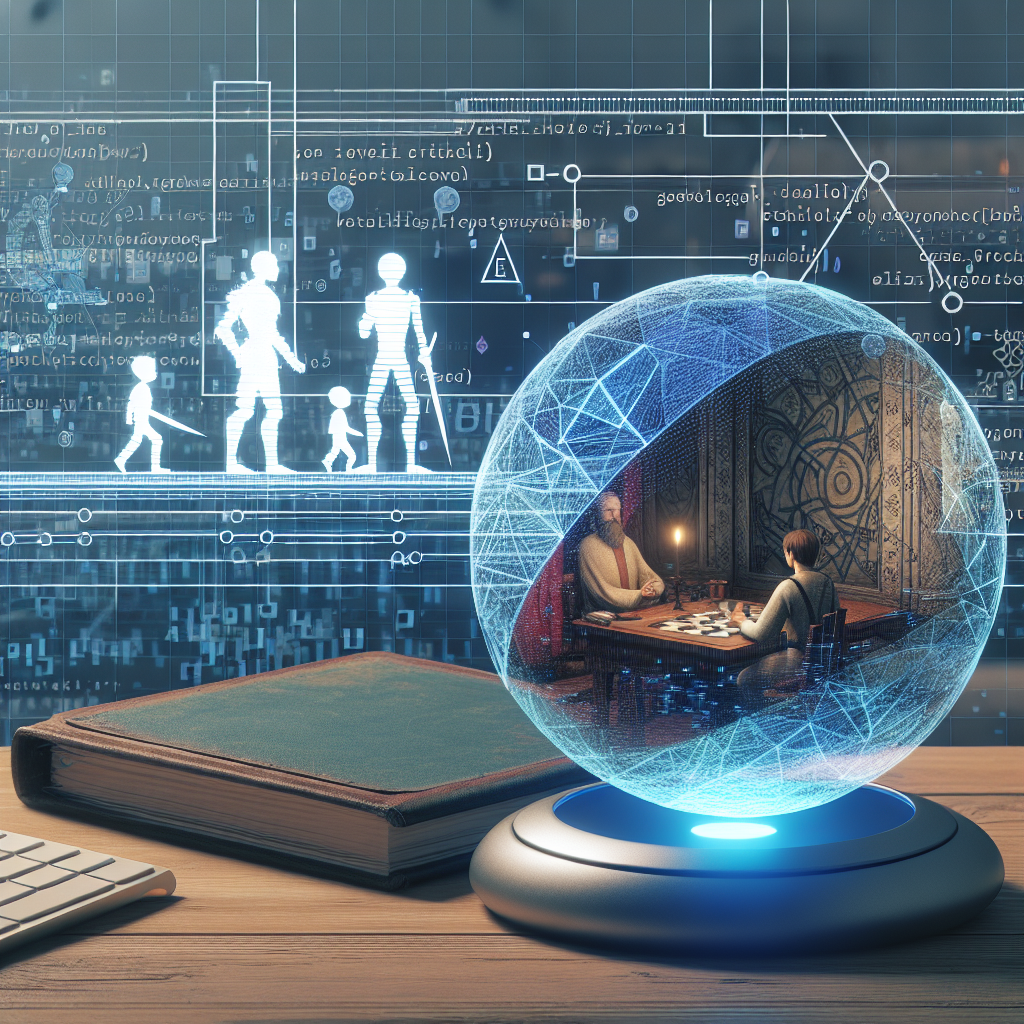The Ethics of AI in Video Game Development
Artificial intelligence (AI) has become an integral part of the video game industry, revolutionizing the way games are developed and played. AI algorithms are used to enhance game mechanics, create realistic non-player characters (NPCs), and improve player experiences. However, the increasing reliance on AI in video game development has raised ethical concerns regarding privacy, bias, and the impact on society. In this article, we will explore the ethical implications of AI in video game development and discuss how developers can address these challenges.
Ethical Concerns in AI in Video Game Development
1. Privacy and Data Security: As AI algorithms collect vast amounts of data from players to personalize gaming experiences, concerns about privacy and data security arise. Players may not be aware of the extent to which their personal information is being collected and used, leaving them vulnerable to data breaches and misuse of their data. Developers must be transparent about their data collection practices and ensure that players have control over their personal information.
2. Bias and Discrimination: AI algorithms can perpetuate bias and discrimination if not properly trained and monitored. For example, NPCs in video games may exhibit stereotypes or discriminatory behavior based on race, gender, or other characteristics. Developers must actively work to prevent bias in their AI systems and promote diversity and inclusion in their games.
3. Addiction and Manipulation: AI algorithms are designed to keep players engaged and coming back for more, leading to concerns about addiction and manipulation. Game developers may use AI to manipulate player behavior, such as encouraging in-game purchases or promoting excessive playtime. It is essential for developers to prioritize player well-being and ethical gameplay practices.
4. Impact on Society: The increasing use of AI in video games has broader societal implications, such as influencing social norms, shaping attitudes, and impacting mental health. Developers must consider the potential societal impact of their games and ensure that they promote positive values and behaviors.
Addressing Ethical Concerns in AI in Video Game Development
To address the ethical concerns surrounding AI in video game development, developers can take several proactive measures:
1. Transparency: Developers should be transparent about their use of AI algorithms in video games and clearly communicate how player data is collected, used, and protected. Players have the right to know how their information is being utilized and should have the option to opt-out of data collection practices.
2. Diversity and Inclusion: Developers should strive to create inclusive and diverse games that represent a wide range of perspectives and experiences. By promoting diversity in their games, developers can combat bias and discrimination in AI systems and create more inclusive gaming environments.
3. Ethical Design: Developers should prioritize ethical design principles when developing AI algorithms for video games. This includes considering the potential impact of AI on players’ well-being, promoting fair play, and avoiding manipulative practices that exploit player behavior.
4. Player Empowerment: Developers should empower players to make informed choices about their gaming experiences, such as providing options to customize AI settings, control data sharing, and set limits on playtime. By giving players more agency over their gaming experiences, developers can promote ethical gameplay practices.
5. Community Engagement: Developers should engage with their player communities to gather feedback, address concerns, and foster a dialogue about ethical issues in video game development. By involving players in the development process, developers can create more ethical and player-centered games.
FAQs
Q: How does AI impact player experiences in video games?
A: AI algorithms can enhance player experiences by providing personalized gameplay experiences, creating realistic NPCs, and improving game mechanics. However, AI can also impact player experiences through bias, manipulation, and privacy concerns.
Q: How can developers address bias and discrimination in AI systems?
A: Developers can address bias and discrimination in AI systems by actively monitoring and training their algorithms, promoting diversity and inclusion in their games, and implementing ethical design principles.
Q: What are some examples of ethical dilemmas in AI in video game development?
A: Some examples of ethical dilemmas in AI in video game development include privacy concerns around data collection, bias and discrimination in AI systems, addiction and manipulation of player behavior, and the societal impact of video games.
Q: How can players advocate for ethical practices in video game development?
A: Players can advocate for ethical practices in video game development by supporting games that prioritize player well-being, engaging in discussions about ethical issues in gaming communities, and providing feedback to developers about their concerns.
In conclusion, the ethical implications of AI in video game development are complex and multifaceted. Developers must prioritize transparency, diversity, ethical design, player empowerment, and community engagement to address the ethical challenges posed by AI in video games. By promoting ethical practices and fostering a dialogue about ethical issues, developers can create more inclusive, diverse, and player-centered games that prioritize player well-being and promote positive values and behaviors.

